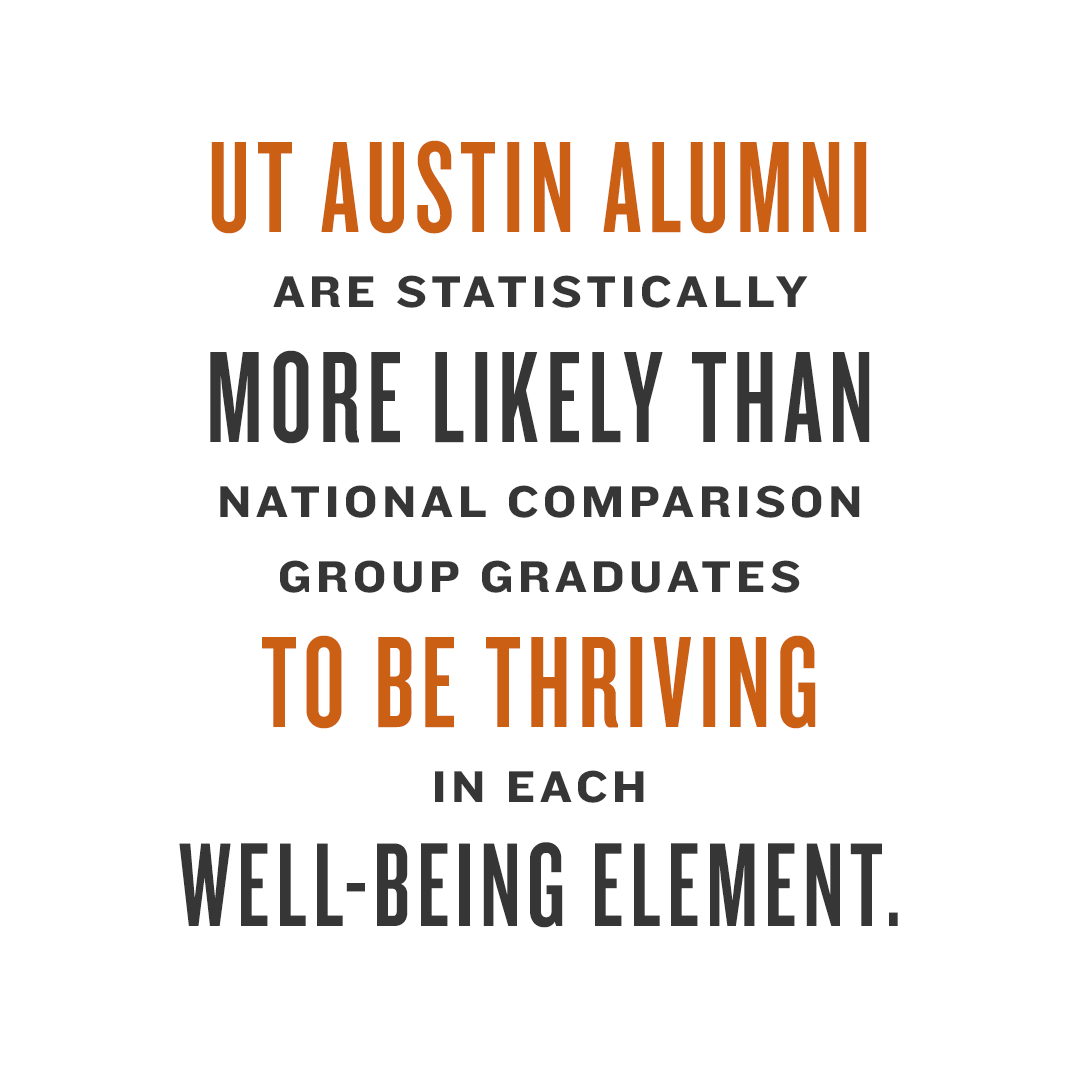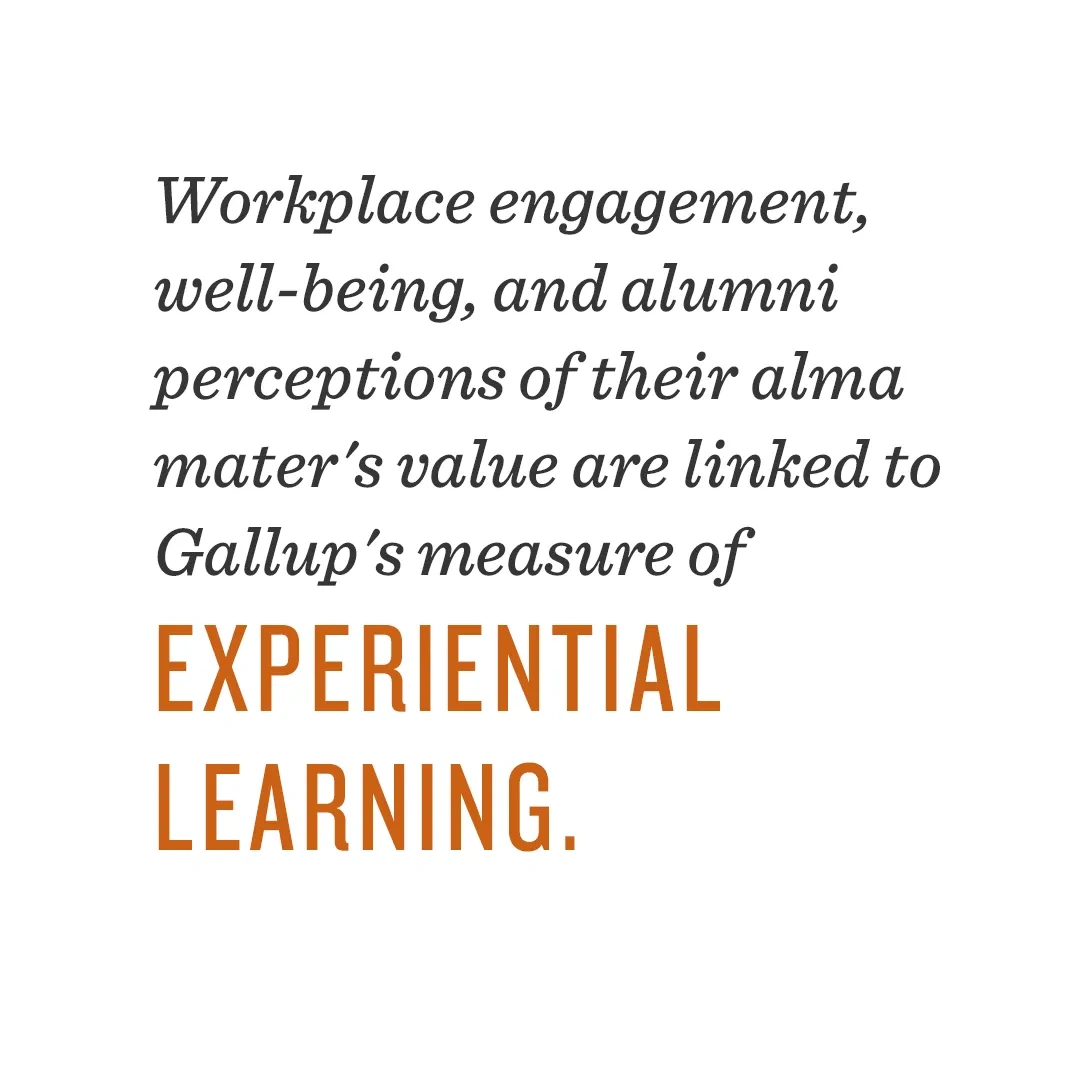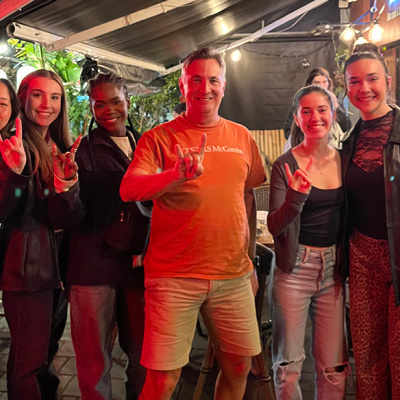The Results Are In: New Survey Shows UT Austin Alumni Are Thriving

According to a survey of UT’s undergraduate alumni conducted this past spring, Longhorns are doing alright, alright, alright.
Since 2014, the Gallup-Purdue Index has surveyed a nationally representative sample of college graduates—now totaling more than 700,000—in an attempt to measure, among other things, post-collegiate well-being. The results showed that UT alumni are significantly better off than alumni from peer institutions.
“UT alumni are really doing great,” says Executive Vice President and Provost Maurie McInnis, “and that was exciting to see.”
The idea behind the Gallup-Purdue index is that the traditional metrics for measuring the value of a higher education—say, job placement rates or alumni salaries—don’t fully capture its impact. “When we first started conducting research,” explains Helen Stubbs, a senior consultant with Gallup, “we wanted to look at the outcomes of a [degree] primarily in the midst of this conversation about ‘what is the value of a college education?’”
One way to help answer that is the notion of well-being among graduates. Gallup has worked to develop a way to measure well-being as an instrument over decades of global research, as a way to help explain what makes for a life well-lived. “If you were to really think about what comes out of a higher education experience,” Stubbs explains, “in the minds of many it is connected to a good job, but it’s more than that. It is being a global contributor to the world, being connected to a community. It’s the idea that people are coming out of undergrad with not just a knowledge base but critical thinking skills that allow them to navigate their worlds and community in a way that provides meaning to their life.”

One reason that UT alumni might be doing so well? Intentional emphasis on student experiences. “What we found was predictive that was much more meaningful than broad stroke typology,” Stubbs says, “was the experience that a student will have engaged in in their undergraduate experience. It is not simply a measure of resources on part of institution, it’s really about where you’re placing your emphasis on the student experience and being really intentional about fostering those experiences.”


UT participated in this survey mainly because it wanted to understand those experiences, McInnis says. The university wanted to understand what kind of an impact a student's experience had on their post-graduate life, and how that experience can inform the work UT does now, with current students. One major takeaway, she explains, is that the results highlighted the importance in connecting students with internships they are interested in, as well as continuing to bring recommendations from the College to Career Task Force Group into reality.


It won’t be a surprise to those that bleed burnt orange that UT Austin alumni have stronger attachment to the university compared to their national peers, and that, too, comes from experiences alumni had as undergraduates, particularly in the classroom. According to the survey, alumni who have professors that cared about and challenged them academically have greater emotional attachment to the university.
“I’m relatively new to UT Austin, and since coming here I’ve had opportunities to meet so many alumni who are passionate about this institution,” McInnis says. “But I’ve had no real way of knowing the depth of this passion. I was so pleasantly surprised to see one of the big takeaways is that UT alum have a much higher attachment compared to our national peers. Clearly, something really special has been going on on the Forty Acres for decades.”
Illustrations by Eileen Wu






